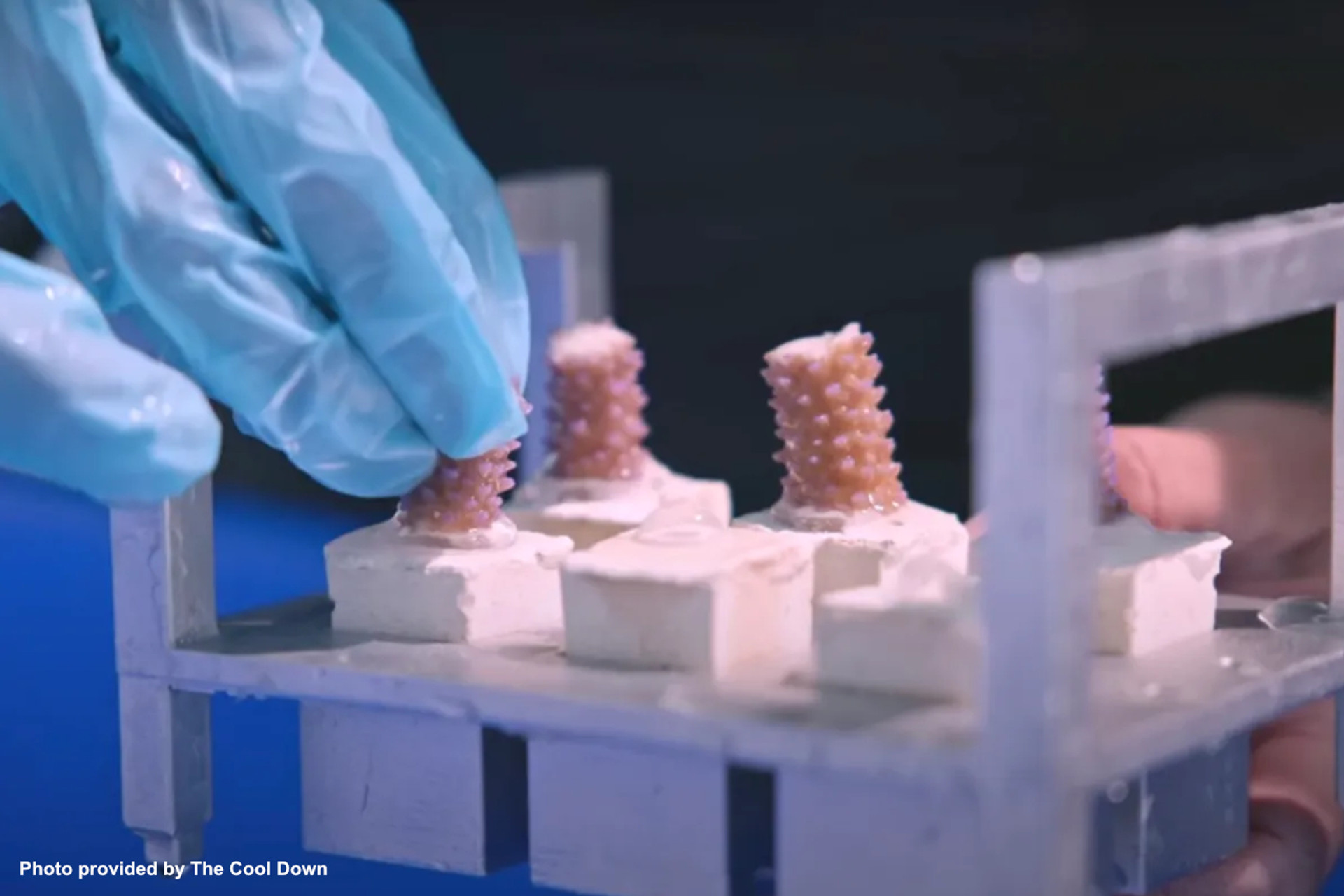New technologies could be key to saving coral reefs — one method grows 'reef-ready' coral in 6 to 9 months

The urgency to restore devastated coral reefs due to atmospheric pollution and rising global temperatures has led to the development of innovative solutions combining robots and mass-production techniques. According to the World Economic Forum, if drastic measures aren't taken, 99% of coral could be wiped out by the 2030s. Traditional coral restoration methods have been slow and laborious, but Taryn Foster, a coral scientist in Western Australia, is revolutionizing reef recovery by automating crucial steps.
Coral Maker, led by Taryn Foster, is revolutionizing coral reef restoration by using robots and artificial intelligence to mass-produce small coral skeletons. Faced with the devastation caused by bleaching events, which can lead to a 90% mortality rate in coral reefs within a few weeks, Foster shifted her focus from scientific research to practical, solutions-based work. Her company aims to plant approximately 250 acres of reef per year, a significant increase compared to the 2.5 acres achievable using traditional methods.
Coral reefs, crucial ecosystems known as the "rainforests of the sea," face existential threats due to climate change-induced bleaching events. However, innovative initiatives like the Coral Restoration Foundation (CRF) in Florida are harnessing technology to accelerate coral restoration efforts. Using synthetic "trees" to grow corals, CRF can produce "reef-ready" corals in just six to nine months, significantly boosting growth rates compared to natural processes. These projects offer renewed hope for threatened reefs and the millions of species and people who depend on them for survival.
Some conservationists advocate for addressing the root causes of coral reef degradation, such as rising global temperatures, overfishing, and pollution, including plastic waste and dirty energy. They argue that while reef restoration efforts can be effective in specific cases, comprehensive solutions require tackling these underlying issues at scale. Erika Woolsey, chief scientist at The Hydrous, emphasizes the importance of combating climate change, mitigating local stressors like overfishing, and preventing the overgrowth of macroalgae as proven strategies to save coral reefs.
As a temporary measure, robots could assist in relocating vulnerable corals to cooler waters through a process called "assisted migration," according to the BBC. While this approach is controversial, proponents argue that bold solutions are necessary in the face of rapid environmental changes. The timeline for implementing mass-manufactured coral skeletons remains uncertain, but experts emphasize the importance of scaling up restoration efforts while also transitioning to cleaner energy sources. These dual strategies are seen as crucial steps in building heat resilience for coral reefs and the coastal communities that rely on them. Go to Leslie Sattler’s article in The Cool Down to learn more https://www.thecooldown.com/green-tech/massive-coral-reef-restoration-automation-robotics/#:~:text=In%20Florida%2C%20the%20Coral%20Restoration,as%20reported%20by%20the%20BBC.